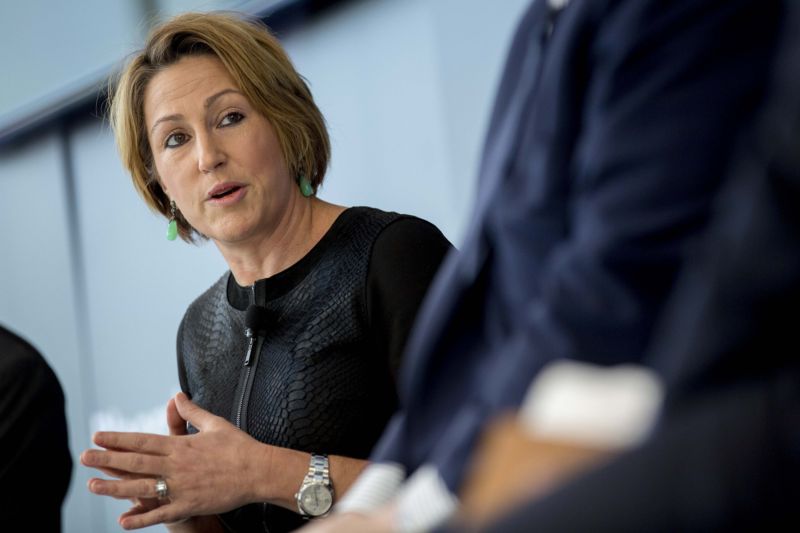
While reviewing Mylan’s tax filings, Reuters dug up an intriguing investment by the pharmaceutical company: refined coal.
Since 2011, the company has purchased 99-percent stakes in five US companies that process coal to make it cleaner burning. Mylan then sells the coal at a tax-deductible loss and earns tax credits, intended to incentivize cleaner energy production. Over the last six years, the drug maker has earned hundreds of millions in tax credits that have lowered its already very low tax rate and raised its overall bottom line.
According to Reuters, the credits helped Mylan lower its tax rate to just over four percent in 2014 and to 7.4 percent in 2015. Also that year, the company underwent a tax inversion, moving its headquarters from the US to the Netherlands, to further slash its tax rate. In 2016, the company had a $358 million tax benefit, giving it an effective tax rate of negative 294 percent.
In e-mailed comments to Ars, Mylan verified that the numbers and information in Reuters’ report were accurate. It emphasized that the federal tax credit program for refined coal “is used by a number of other large public companies across various sectors.” However, Reuters notes in its report that “Mylan is one of only a few public companies, and the only publicly traded pharmaceutical maker, that uses these tax credits,” according to the outlet's review of US Securities and Exchange Commission filings.
The news of the unusual investment falls on the eve of Mylan’s annual meeting, in which investors will vote on its board of directors. A group of shareholders, frustrated by the EpiPen pricing scandal and board members’ eye-popping compensation packages, has been working to rally other shareholders to unseat the current board. Last week, independent advisory firm Institutional Shareholder Services (ISS), which advises shareholders on how to vote, also urged Mylan’s investors to oust the board, as well as the compensation committee members.New York City Comptroller Scott Stringer, who oversees New York City pensions that own more than 1.1 million shares of Mylan, is leading the campaign against Mylan’s current board. In an e-mailed statement to Ars, Stringer was quoted as saying:
“From the EpiPen pricing debacle, to embracing complex tax avoidance strategies, Mylan’s board appears more focused on financial engineering than on the company’s core business. These short-term strategies have enriched executives, often at the expense of long-term shareowners, consumers, and American taxpayers. It’s unclear whether the board of this pharma company even understands the risks posed by Mylan’s tax shelter coal investments – and if it’s qualified to oversee them. Mylan shareowners need a board that will focus on creating sustainable shareowner value.”
The refined coal tax credits expire in 2021.
According to tax documents, Mylan for now has 99-percent stakes in: Canton Fuels Company in Illinois, Chouteau Fuels Company in Oklahoma, Deogun Manufacturing Company in Utah, Marquis Industrial Company in Indiana, and Powder Street LLC in West Virginia.
Over the last several years, Mylan has reported from the operations' large pre-tax losses, which are said to be tax-deductible. Losses amounted to $92.3 million in 2016, $93.2 million in 2015, and $78.9 million in 2014. Yet, the tax credits those operations produce are highly valuable. Reuters reports that companies received $6.81 of tax credit per ton of refined coal. Mylan produced 16 million tons of refined coal in 2016.Mylan Chief Executive Heather Bresch, who is one of the board members facing ouster by angry shareholders, has a personal connection to coal country, Reuters points out. She is the daughter of US Senator Joe Manchin of West Virginia, the second-largest coal-producing state in the US. Mylan declined to comment on any such connection to Reuters or explain how Mylan got into the coal tax credits. It also did not address the issue in communications with Ars.
Here is Mylan’s full statement to Reuters and Ars:
“In 2004, the federal government updated the long-established Section 45 of the Internal Revenue Code, which encourages and incentivizes private capital investment in renewable energy, to include incentives to invest in the use of emission reducing refined coal in the production of electricity. This program grants a tax credit to any company that is willing to invest in refined coal facilities and fund the additional costs of production. Often, these investments tend to be made outside of a company’s ordinary course of business, and companies involved in such projects range across a variety of non-energy related sectors. Mylan undertook these investments in refined coal production under Section 45 starting in 2011. The investments you list are accurate, as are the numbers for 2014-2016. Tax credits generated in each of the years 2013 and 2012 were significantly less than (in fact, less than half of) those generated in the later years. We have no unused credits. We note again that this program is used by a number of other large public companies across various sectors.”
reader comments
167